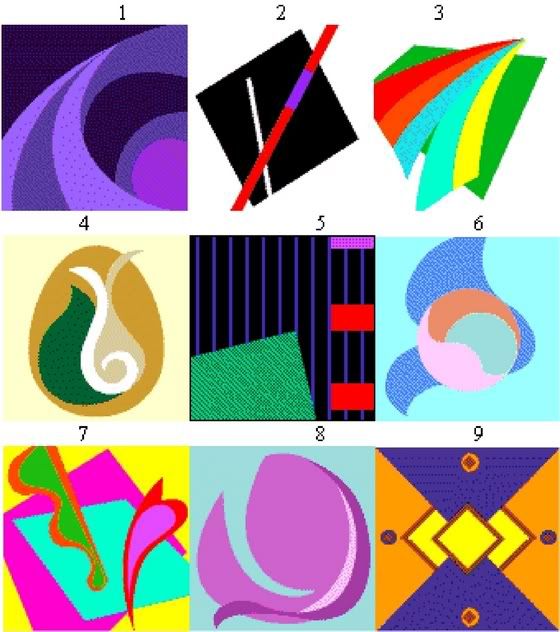What you need to know about your response to stress
Stress is the nervous systems response to feeling unsafe, and safety is a prerequisite for survival. The reactions that alert you to stress can appropriately reflect what is realistically happening or they can be a reaction to distressing memories and your own negative thoughts. Distinguishing between the two is important. You do need to know when you are in danger, but feeling endangered all the time will drain and exhaust your immune system exposing you to all kinds of illness.
Stress is a universal experience, but responses to it vary among individuals
Our nervous systems react differently to situations that are, or are perceived to be, overwhelming, isolating, confusing, or threatening. No two people are wired exactly the same, but Dr. Connie Lillas, a child development expert from Los Angeles, uses the analogy of driving a car to describe the three most common ways people respond to stress:
The most common ways of responding to stress are:
- Angry or agitated – a heated, angry, in-your-face response where the person is agitated and can’t sit still.
- Shutdown, depressed, or spaced-out – the person exhibits little energy or emotion.
- Frozen or traumatized – the person is tense and still, can’t get going, and can’t accomplish anything. Some people have had frightening, overwhelming experiences that wire their nervous systems to “freeze” when challenged by stress. Their stress responses are especially complex and contradictory. They may look paralyzed, but are racing within.
In managing stress, you are looking for that “just right” feeling
Many of us spend so much time in a stressed state, we have forgotten what it feels like to be fully relaxed and alert. You can see that “just right” inner balance in the smile of a happy baby—a face so full of joy it reminds adults of the balanced emotional state that most of us have misplaced. In adulthood, being balanced means maintaining a calm state of energy, alertness, and focus. Calmness is more than just feeling relaxed; being alert is an equally important aspect of finding the balance needed to withstand stress.
There are two very different ways to restore equilibrium and they both work well
Your nervous system is primed to deal with stress in two different ways: First, you can dependably calm down in a hurry when you are with another person –someone that you trust—who is calm and focused themselves. Remember that infants are completely dependent on their primary caretaker for calming and soothing. This ability to find comfort in others persists thought out life. All of us need to be able to reach out to others in this way. Doing so may seem like an imposition but, in fact, almost never is. Many if not most people experience helping another as a privilege that makes them feel good about themselves.
The second method for calming and energizing your nervous system is by identifying sensations that immediately relax and energize you. There are particular sights, sounds, smells, tastes and sensations that you can focus on to quickly and dependably to restore your equilibrium when it is out of balance. This is a skill that any adult can develop with practice.
Defusing emotional stress with sensory input
You can take control of your response to stress by investigating those sensations that rapidly bring you back into a state of equilibrium. A stress-buster detective is one who seeks out the right kind of sensory input to soothe, comfort, and invigorate in the moment!
Each person responds differently to sensory input. For example, certain kinds of music may relax one person but irritate another. The smell of incense can lift one person’s distress, but another may benefit most from candle light.
Knowing the right kind of sensory input is essential to:
- Speed up, if you are a person who is spaced out or distressed
- Slow down, if you are a person who is angry or agitated
- Help get unstuck, if you are a person who is frozen with anxiety
Being a “stress-buster detective” will help you take actions that help calm and focus you at home and at work. You can learn to create sensory-rich environments everywhere: in your car, in your office, or wherever you spend time.
You may already be familiar with stress reduction techniques like yoga or meditation, but in relationships, you need to defuse stress in the moment. You need personal stress reduction techniques that:
- Both relax and energize you — help you feel both calm and alert
- Have immediate impact — bring quick, positive responses
- Are enjoyable — you feel good while using the technique
- Are dependable — consistently work for you
- Are available — are at hand or easily accessible
Sensory awareness exercise: learn what works best for you
To Prepare
Prepare for the sensory awareness exercise by releasing any tension you may be holding in your body. You do this by tensing, tightening, or squeezing parts of your body for 5 seconds and then releasing those muscles. As you release, surrender any tension or discomfort in that part of your body.
-
Begin by squeezing your toes and feet for 5 seconds … and let go.
-
Next focus on your calves and thighs, squeezing them for 5 seconds … and release. Take a moment to experience the sensations in the skin, muscles, and bones of your legs.
-
Now focus on your pelvis and lower back, squeezing these parts for five seconds … and let go.
-
Now direct your attention to the muscles in your stomach and middle back, tightening and holding them for five seconds ... and release.
-
Now squeeze and hold your chest and upper back … and release. Take a moment to focus on the sensations in the upper part of your body.
-
Now tighten your neck and shoulders for five more seconds … and release. Do you feel more relaxed in your neck and shoulders?
-
Finally, squeeze and hold the many muscles in your face, including those around your jaw, eyes, mouth, and nose for five seconds … and let go, allowing all of these muscles to go slack.
Take a moment to experience the sensations throughout your body.
Imaginary visualization
Clear your mind of all unrelated thoughts, soften your eyes, and take several slow deep breaths.
- Imagine a forest of trees, a breathtaking arrangement of flowers, or a spectacular beautiful garden.
- See, feel, and experience a water scene that is both cool and invigorating.
- Visualize and experience a person or animal you love.
Take a moment to draw in this experience. Note images that instantly make you feel relaxed.
 Sensation of Sounds
Sensation of Sounds
- Recall some of the sounds of nature: possibly bird calls, flowing water, or the sound of the wind rustling leaves.
- Recall some melodies, musical instruments, or voices that you enjoy.
Take a moment to draw in the sensation of one of these experiences. Do any of these both sooth and invigorate you?
 Sensation of Scents and Smells
Sensation of Scents and Smells
- Imagine breathing in the scent of lemons, ripe strawberries, lavender or mint.
- Imagine smelling warm chocolate, gardenia, musk or your favorite perfume.
Allow one of the delightful sensations to linger in your nostrils.
 Sensation of Touch
Sensation of Touch
- Recall the feel of a baby’s skin or the softness of a puppy or kitten.
- Imagine the sensation of a soothing touch on your arm or leg.
- Recall having your face or hair stroked.
Take a moment to revel in these sensual delights, noting any sensations that both relax and invigorate you.
Movement Sensations
Now take a moment to stretch. Pay attention to your body sensations while trying the following:
- Move your feet like you are running in place.
- Tap your head lightly with your fingertips or roll your head in circles.
- Move your body pretending you are dancing in place to imaginary music.
Reflecting on the exercise
When you’re done, take a deep breath, fully exhale and take in the experience. What sensations do you feel?
Did you experience colors, sights, scents, or movements that are not part of your memory bank but might be worth exploring? If so, practice until you can recall these sensation whenever you choose.




















Saya dah buat test tu and get 18 points means I'm totally stresss huhuhu...
ReplyDeletesalam ajleaa.. sorry le tak terperasan comment nih..almaklum bulan pose dah ujung2 nak raya sbuk dgn buat kueh, disamping itu amaln2 sunnat harus jugak ditingkatkan...
ReplyDeleteberkenaan tahap stress tuh mmg ssetengah org keadaan stressnye selalu tinggi, bergantung kepada jenis personaliti dan metabolisma dalam badan.. ada ubatan dan rawatan yang bole diperolehi dari doctor disamping mengamalkan pemakanan dan cara hidup yang sehat...seperti yang disarankan diatas...